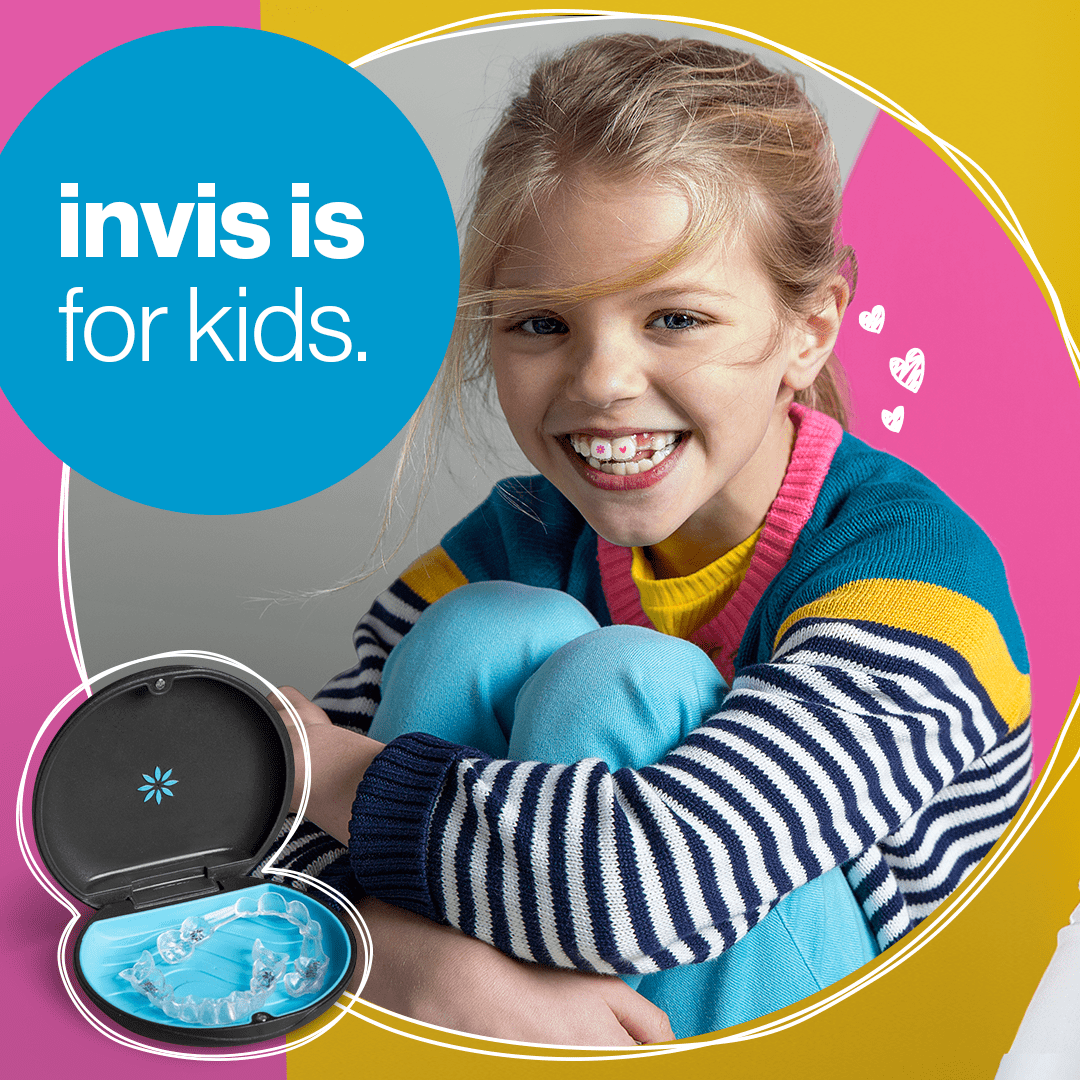If you’re looking to straighten your teeth, there’s one debate you must settle before selecting an orthodontic intervention — should you go with Invisalign or braces?
On the one hand, you have a tried-and-true teeth straightening method that’s existed forever with braces (and the Damon Braces at Orthobar are second to none). On the other hand, you have a virtually invisible way to straighten your teeth free from brackets and wires.
Both options are proven effective for most orthodontic cases, but there are moments when one choice is better for you or your loved ones.
Get ready to have your questions answered. In this post, we’ll break down the pros and cons of Invisalign and braces to help you decide which is best for transforming your smile!

Does Invisalign or Braces Straighten Teeth Faster?
Every smile we see at Orthobar is unique, so it’s hard to say that one teeth straightening method is faster than another. Ultimately, your time in orthodontic treatment will depend on what you’re straightening and your personal smile goals.
Expect 14-18 months of treatment time for either Damon Ultima braces or Invisalign aligners. Teeth needing more movement to become aligned or more severe bite corrections will take longer than others that only need slight adjustments.
The major difference between Invisalign and braces is patient compliance! With braces, little compliance is required. However, with Invisalign, the retainers will not work if they are not in the mouth. This requires the patient to be on top of putting the aligners back in after eating, drinking colored liquids, or practicing dental hygiene.
Should You Choose Braces Over Invisalign for Bite Correction?
Both Invisalign and metal braces can correct bite alignment, but there may be times when one straightening treatment modality is better than the other.
Invisalign can fix most misaligned bites, including overbite, underbite, crossbite, and open bite. But sometimes clear aligners aren’t the most effective way to treat these conditions.
In severe misalignment cases, we recommend metal braces for our patients. Braces are more reliable when making major corrections and can prevent repeat attempts at correcting bite alignment issues.
Can Invisalign Close Significant Gaps Between Teeth?
When it comes to closing large gaps between teeth, this is where metal braces really shine.
Invisalign does a great job at shifting teeth into place, but the treatment isn’t effective at providing pressure in the right direction to close gaps between the teeth.
In contrast, braces can consistently apply gentle horizontal force because of how the wire attaches to the brackets on your teeth. This force makes it possible to close gaps that occurred as your adult teeth came in or even spaces created from extractions later in life.
Does Tooth Shape Affect My Choice Between Braces or Invisalign?
Yes! The physical shape of your teeth plays a major role in the effectiveness of clear aligners.
If you have shorter or more rounded teeth, aligners like Invisalign struggle to move teeth into position. This is because the aligners rely on grabbing the edges of your teeth to shift them where they need to go.
Metal braces do a much better job on smaller teeth because tooth shape doesn’t affect the way they straighten teeth. The brackets can attach to teeth of all shapes and sizes.
Does Age Play a Role in Choosing Between Invisalign and Braces?
At Orthobar, we offer young kids an Invisalign option for early treatment! Young children’s teeth move extremely efficiently, and Invisalign First options allow us to expand the dental arches and create space for adult teeth to erupt! We call this interceptive or Phase I treatment in our office.
Generally, clear aligners work better for older teens and adults because they require more proactive behavior during the process. Forgetting to wear the aligners long enough during the day or not cleaning them properly can negatively affect how well they straighten teeth.
You won’t have to worry about forgetting to put your aligners in with metal braces, which makes the teeth straightening process a bit simpler for younger patients.

Can My Previous Dental Work Affect Treatments?
Short answer: yes, it can.
Previous dental treatments, such as bridges, veneers, or crowns, may make it difficult for braces to bond to teeth properly. Invisalign is a great option for patients with extensive dental work.
We tend to limit the amount of “attachments” we place to aid in tooth movement for patients with crown, bridge, and veneer work. This can limit the amount of movement we can program or successfully treat.
Choose Orthobar for All of Your Braces and Invisalign Needs
Deciding between Invisalign and braces can be challenging on your own, and you won’t find all of the answers without a professional’s help. Our orthodontic experts, Dr. Petersen and Dr. Grahl will guide you to make the right choice and develop a unique treatment plan that makes your smile shine.
At Orthobar, we love helping Las Vegas improve its smile. If you’re a new patient, be sure to schedule your complimentary consultation with our team today!







